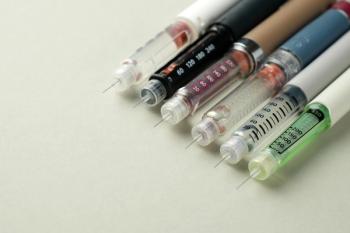
She Thinks I Might Know
What’s the prudent way to react if a layperson is suddenly tapped to help get psychiatric care for somebody who says he desperately and immediately needs it-or else?
It’s a late Friday afternoon here on the east coast-an August afternoon of pure summer majestry. It doesn’t get better than this if you live around here…blue skies, 82 degrees, dazzling shades of green wherever you look -- and the promise of more for the weekend. All’s right with the world this lovely afternoon.
And then suddenly there’s an emergency email from my colleague and friend– could I please call her right away?
I hear her tell me in a panicked voice that a man from the other side of the country has found her number on our (Psychiatric Times) website. He’s just read an article on our site about psychopaths: he wants my colleague to put him in touch with the author. He’s drunk – apparently very drunk – drinking, he tells her, because he’s afraid he’s going to hurt himself or somebody else.
He’s scared of what he might do when he sobers up . . . of what’s about to happen.
And so is she.
She doesn’t know what to do -- and asks me what I think she should do.
As if I really know.
Her husband (a physician) tells her to call up the cops.
I tell her the same.
She needs to make this call … must do it. The police will try to help him -- not hurt him, I reason. And who knows? They might even prevent yet another murder or slaughter we read about almost every day these days.
Right?
She tracks down the number of a psychiatric institution not far from where the man is calling from and gently urges him to call for help. He can’t miss her empathy and warmth.
And then, reluctantly, she calls the local sheriff, who says (none too comfortingly) that “he’ll look into it.”
If I know her, she’ll be on the next plane.
As readers of Psychiatric Times know all too well, psychiatric emergencies are part of daily life. (The
But it’s not every day that laypeople are confronted with someone teetering on the verge. The scenario I’ve described here is a first for the Psychiatric Times staff. But people in the throes of a psychiatric crisis frequently post comments on our website and ask for help. And we routinely respond with comments like: “We are not medical doctors and therefore cannot recommend any treatments. We suggest that you ask your consulting physician.”
But how many of these actually have a consulting physician, let alone a psychiatrist?
So what’s the best way to respond when a layperson is suddenly involved in a psychiatric emergency? What’s the prudent way to react if one is suddenly tapped to help get psychiatric for somebody who says he desperately and immediately needs it-or else?
And what are the chances that there's psychiatric help to be had out there instead of a jail cell?
Dear readers . . . we welcome your comments.
And to our Friday caller: we all hope you got help.
Newsletter
Receive trusted psychiatric news, expert analysis, and clinical insights — subscribe today to support your practice and your patients.







